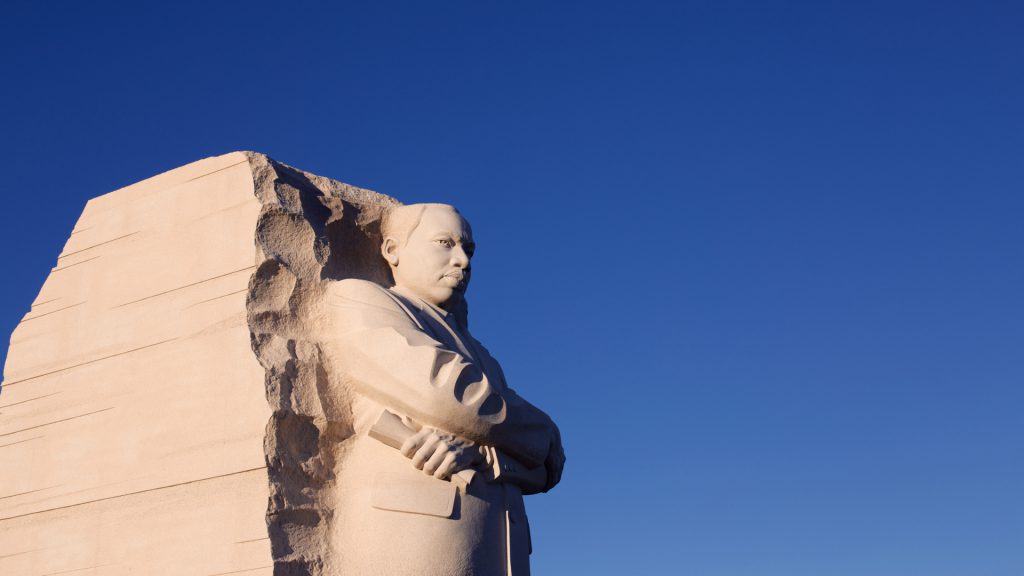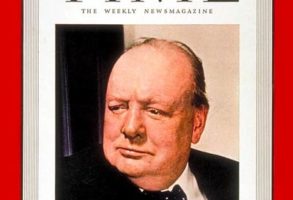
Published June 18, 2019
How can one understand the behavior unearthed by Martin Luther King Jr. biographer David Garrow? Mr. Garrow has reported, in sometimes pornographic detail, on King’s assignations with some of the more than 40 women, single and married, with whom he is said to have had affairs. In the ugliest scene—difficult to comprehend or forgive—King stands by, and even laughs and offers advice, as a fellow minister rapes a woman. King is drunk, and he brags about it.
Mr. Garrow’s 7,800-word article had to be published by the British magazine Standpoint because American publications turned it down. Its revelations are from the mid-1960s, at the height of the civil-rights movement, the years before King was martyred and canonized, his name bestowed upon a national holiday and a thousand avenues and high schools.
Grown-ups understand—though children and ideologues do not—what F. Scott Fitzgerald meant when he said that “the test of a first-rate intelligence is the ability to hold two opposed ideas in mind at the same time and still retain the ability to function.” We will now live with two contradictory and irreconcilable ideas of Martin Luther King Jr.
Those close to King, including journalists covering the civil-rights movement, were aware of his womanizing and drinking—though they did not know the extent or, shall we say, the vividness of it. Some of his clerical associates, Mr. Garrow writes, joined him in group sex with women whom, using a private code, they called “parishioners.”
Reporters heard rumors at the time. They talked and sometimes joked about them. But they did not write about such things, for it was a different time, with different rules regarding the privacy of public figures. Reporters didn’t write about Franklin Roosevelt’s wheelchair, either, or about Joseph McCarthy’s drinking or John Kennedy’s sex life.
When King preached to his congregation, he often spoke of himself as a sinner. Unlike some preachers, he meant it. He knew that he was a flawed man. Maybe King’s conscience should be understood with the help of the novelist Graham Greene’s modernist Catholic conceit that great saints may find their path to salvation by way of egregious sins. Some psychiatric speculation suggests that the drinking and the sex were the result of manic depression.
On the exalted, public side of the ledger stands the moral leader who changed America for the better and who knew the price that he would pay for it. “I may not get there with you,” he said on the night before he was shot. “But it really doesn’t matter with me now, because I’ve been to the mountaintop.” That was the majestic King, the prophet. “I’ve looked over,” he said, “and I’ve seen the Promised Land.” He elongated the word “seen” so that it fairly quivered in the air.
Some historians and others defending King’s memory have suggested that Mr. Garrow’s evidence is tainted or racist. In the 1960s and later, many knew that J. Edgar Hoover’s Federal Bureau of Investigation had bugged King’s hotel rooms and offered the sex tapes to various media to discredit him.
Mr. Garrow’s information, however, appears to be solid. He is a painstaking, widely respected historian and Pulitzer Prize-winning biographer. The material in his article is not based on hearsay (which one often finds in raw FBI files) but on newly released, vetted summaries of the FBI’s audiotapes, which are themselves sealed until 2027. A 1977 report from the Justice Department’s Office of Professional Responsibility confirmed the transcripts’ accuracy.
Mr. Garrow, by the way, is a man of the left, a self-described democratic socialist. He has always been an admirer of King. Besides, skeptics will not be able to impugn his scholarship for long. Any remaining doubts should be settled eight years from now, when the public will hear King’s familiar voice on the tapes. Mr. Garrow predicts that the shock will be considerable.
We are running out of paragons. I believe in Great Man theories of history—or believe, in any case, that the absence of moral leaders such as King is a catastrophe. A country without heroes becomes either savage or monstrously petty, and dull and mean. What we have today is a toxic compound of savagery and pettiness made even worse by the ruthless self-importance of identity politics. We have grown profligate in destroying heroes. I don’t think we can afford to lose Dr. King.
The way out, I’d say, is grace, if anyone believes in grace anymore. It’s become a rare thing in American public life. Martin Luther King was complicated, and some of his behavior was vile. Yet he gave his life—gave it knowingly—for the sake of the country, for blacks and also for whites. He deserves the grace of his country’s forbearance.
Mr. Morrow is a senior fellow at the Ethics and Public Policy Center.








